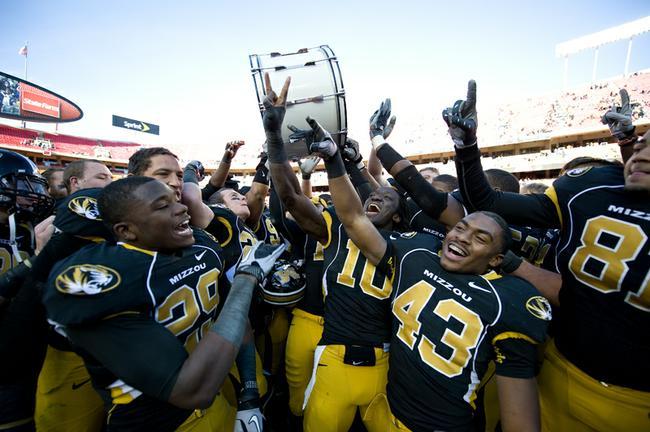
MU ranks third in the Big 12 for its number of athletic programs, but its ranking drops to eighth in total expenses, with eight programs spending the least of any Big 12 program in the same sport.
Despite its relatively low operating budget, the Athletics Department is thriving, Athletics Department spokesman Chad Moller said.
“It’s certainly been a challenge,” Moller said. “But that’s just been our philosophy under Mike Alden’s leadership – that our mentality here has to be that we do more with less. There are a lot of people out there who believe that having more money than anybody else guarantees winning and top-notch programs. We don’t think that’s necessarily the case.”
With operating expenses at $53.2 million, MU managed to generate $55.7 million in revenue between July 2009 and June 2010, according to the U.S. Department of Education. The department is completely financially independent of MU, Moller said. MU is one of few departments in the nation that can boast this fact.
“The Athletics Department used to receive money from the campus to go toward debt retirement for our facilities,” Moller said. “That was to the tune of a couple million dollars a year. We have, over the past three years, worked that off of our books so we no longer receive any money from the university.”
This was set as a goal in response to Gov. Jay Nixon’s proposal to cut state appropriations for the UM System by 7 percent, which would amount to a $12.7 million drop in funding for MU.
“It just makes sense for a lot of reasons,” Moller said. “With the scrutiny that universities are under in this day and age with the economic situation, there’s a lot of thought out there of whether athletics is something that a university should spend its limited money on. I think the fact that we can show our level of success and be sufficient makes everyone feel good.”
Still, donating these funds will not affect MU’s 20 athletic programs, Moller said. In fact, many teams have seen some of their most successful seasons in recent history, regardless of their budgets.
The wrestling team, a nonrevenue sport, has the lowest operating budget in the Big 12, but it still managed to produce an individual national champion and a top 10 finish for the third time in the past four years.
“If your mindset lets it impede you, it will,” wrestling coach Brian Smith said. “Would it be easier if I had more money? Heck yeah. Anybody that answers that question and says they would rather work with less money would be lying. But my mindset when I took this job was, ‘We can build this into a really great program.’ You have to approach it with a ‘glass half full’ approach.”
He said the team uses fundraisers and alumni donations to supplement its budget. The team’s budget is something Smith said rarely comes to his mind, and thus he does not worry about it much.
“The situation is what it is and you have what you have,” Moller said. “You have to develop a plan to wisely spend the money that you do have, and we feel good that we’ve found the right balance of taking what resources we have and creating an environment where you can have a successful program. There are more ways to support a program than just having an unending checkbook.”